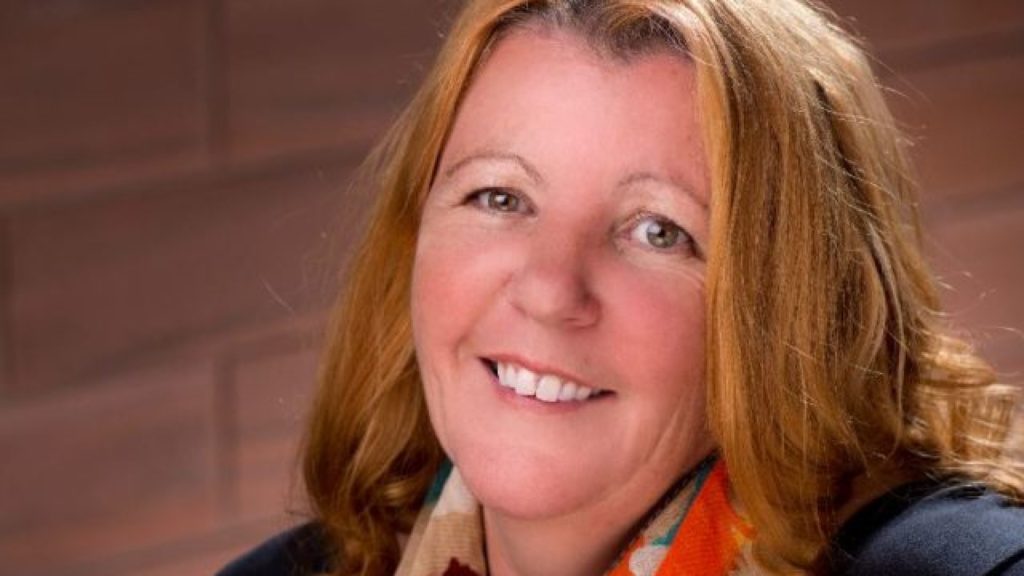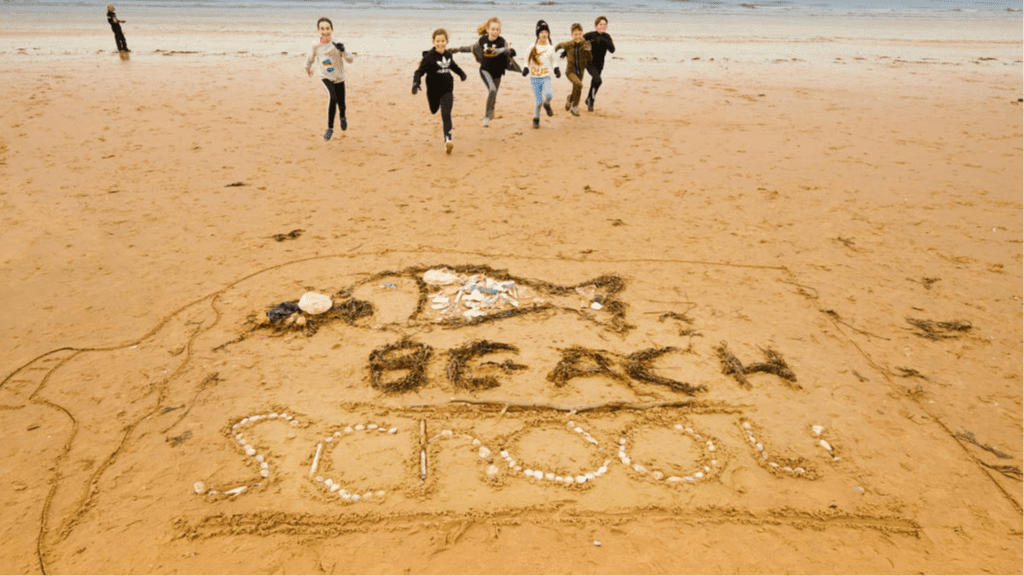Senior lecturer in Primary Education, Cait Talbot-Landers is the founding member of a network of schools and organisations developing beach school education along the Sefton and Fylde coasts. Working alongside Faculty of Education colleagues Dr Bethan Garrett and Louise Hawxwell, Cait has been involved in a research project which could play an instrumental role in the future of beach schools.

Why are Beach Schools important?
We are an island nation with a large coastline and so it is part of every child’s birth right, to know, understand and appreciate our coastline. Effective Beach Schools can support this We are an island nation with a large coastline and so it is part of every child’s birthright, to know, understand and appreciate our coastline. Effective Beach Schools can support this understanding and are very flexible as they can be used to support children’s learning in different ways. Learning on the beach engages and motivates children, enlivening the curriculum as they can learn anything from maths using pebbles, to English by using charcoal to write on driftwood or simply writing in the sand. It’s great for their emotional wellbeing as it awakens their imaginations, as well as providing them with a greater understanding of ecology and instilling them with pride in where they live. Beach Schools provide opportunities for personal and social development, promoting wellbeing and community engagement. Our network is about supporting all teachers to have the confidence and understanding to use the coast with their class. In providing our students with opportunities to undertake some Beach School training we hope for them to be able to support the schools that they go to work in.
What inspired your passion for Beach School?
I have always loved outdoor experience. My career began in Museum education and then I worked at the Waterfowl and Wetland Centre at Martin Mere as an Education Assistant before I undertook a PGCE and became a Primary School Teacher. It was natural for me to use school visits to different settings and environments as part of my everyday practice. I worked in a school where the community was isolated and so our curriculum was designed around ensuring they gained wide experiences. This continued when I worked in the Isle of Man using all the resources on the island including the beaches. I love the coast and all things related to marine life and so I was naturally interested when I heard about Beach School. I undertook the Beach School Practitioner training over the summer, working with students and Isle of Man teachers as part of my Portfolio. The environment was just a wonderful place to teach. I have always preferred teaching in spaces and settings outside a classroom.
How is the project going in terms of research?
Our project is going well. We now have over 45 schools and educational organisations along the North West coast in our network and we run three training sessions per year on the Sefton and Fylde coast. We have presented our initial research at an International Conference on Action Research, the National Teacher Training Network conference and to the National Outdoor Learning Advisors conference in 2019. We have also presented some of our findings on the BBC North West news. We are also supporting Edge Hill’s Department of Geography and Geology with their research project supporting coastal communities to manage the coastline. There is little actual research evidenced literature on Beach Schools, so we are hoping to significantly add to this.

Why is developing skills in teaching outside of the classroom beneficial to Education and Teaching students?
Teaching outside the classroom is fundamental to learning, it is how humans and all living things have always learnt best, in their natural environment, the real world. We learn from experience, from applying and using our knowledge and skills practically and reflecting upon what we have learnt from it. This is how our understanding develops. Therefore, it is clear that the most effective way that both children and adults learn is from the world they live in. We know from research that learning in natural environments impacts positively on children’s wellbeing, cognitive development, social skills and increases their sense of environmental stewardship and makes them more active citizens. Secondly, we are all aware of climate change and the prognosis that we have approximately 30 years before we tip over the point of no return and so we really do need to be serious about addressing the environment and rebuilding a new positive relationship with the natural world. That starts with our children and the education system.
How is this implemented across their degree?
It is important that we prepare new teachers to feel comfortable and to understand how to plan and use outside sites effectively. That is why we have continued to build in outdoor learning across our education programmes. Across all three years, students receive specific lectures and seminars on key themes of Learning Outside the Classroom and are given opportunities to take part in workshops using the outdoors including sessions on Forest School in Ruff Woods, Beach Schools and visits to the museums and galleries in Liverpool. We embed experiences across different modules so that students understand how to use outdoor learning to develop opportunities across the different subjects within the curriculum. As part of our research projects students are involved in museum education and Beach School, learning about how to effectively use these approaches to support children’s education.
June 10, 2022


